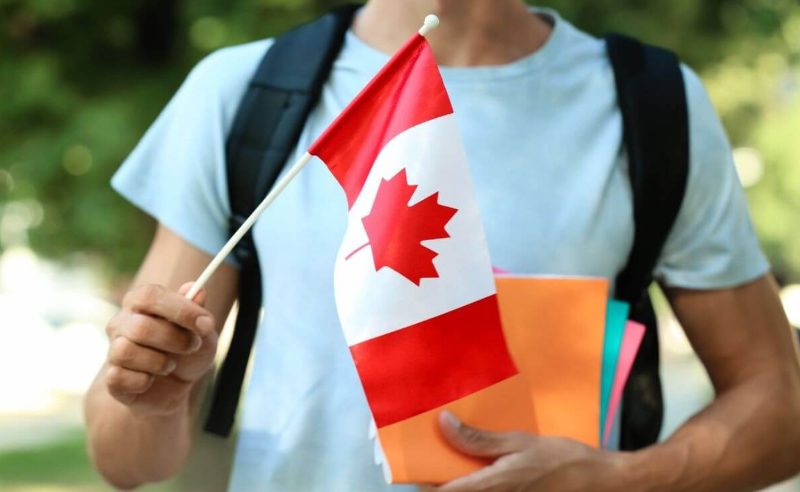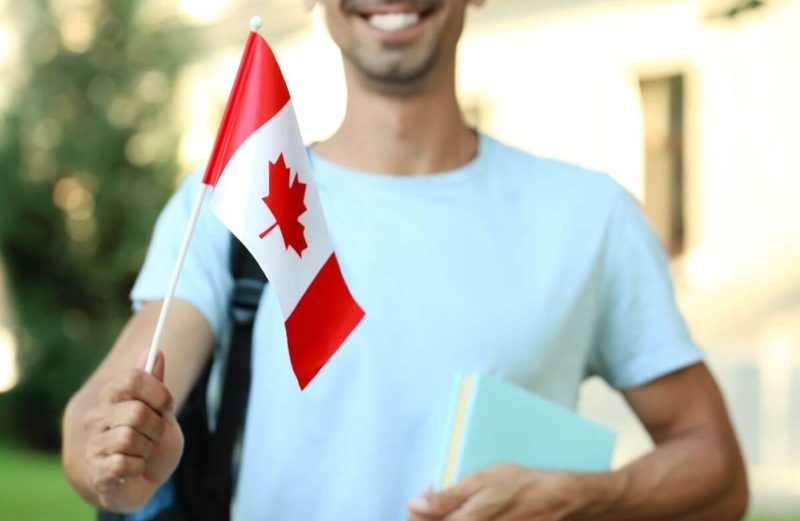Get free consultation
Fill out the form and we will contact you
Canada's education system is renowned for its outstanding quality, making the country a popular choice for many international students. Settling in Canada after completing a study program is also an attractive option for international students. However, to study in Canada, obtaining a study visa is essential..
The Canada Study Permit, one of the most common types of visa today, is an important document that allows international students to enter and study in the country. Students can stay in Canada for the duration of their studies. To better understand this study visa, you can read detailed information in the article below from Second Citizenship.
The CES (Canada Express Study) visa is an ideal option for international students studying at universities or colleges that are part of CICan (Colleges and Institutes Canada). The standout feature of this visa is that applicants do not need to provide proof of financial support, making the application process quicker.
CES visa does not require proof of financial support
However, a limitation of the CES visa is the restricted choice of schools. Students can primarily apply to colleges, and the number of universities participating in this program is quite limited.
The SDS (Study Direct Stream) visa was introduced in Vietnam in 2018 and is currently available for four countries: Vietnam, China, India, and the Philippines. This visa allows international students from these countries the opportunity to study in Canada without the need to prove financial support.
The SDS visa stands out with the advantage of allowing students to apply to all post-secondary institutions in Canada. However, to be eligible for this visa, the IELTS score requirement will be higher than for other programs.
In contrast, both the CES and SDS Canada Study Permits are primarily intended for students who have graduated from high school. If you plan to study in Canada earlier and do not belong to the priority countries, you can opt for a regular study visa. While a regular visa requires proof of financial support, it offers you more choices of schools.
SDS visa for international students with financial difficulties
The winters in Canada can be very harsh, so good health is essential for international students to adapt to the country's climate conditions. To ensure eligibility for entry, you need to undergo a medical examination at government-designated health centers in Hanoi and Ho Chi Minh City.
If you suffer from any of the following diseases, you will not be eligible to enter Canada:
HIV/AIDS
Sexually transmitted diseases such as gonorrhea, syphilis
Infectious diseases like smallpox, whooping cough, rabies, chickenpox, tetanus, measles
Non-communicable diseases such as cancer, heart disease, diabetes
For treatable diseases, it is recommended to complete the treatment process before undergoing the medical examination for a Canadian study permit.
Depending on the level and type of institution, the academic requirements may vary:
Undergraduate preparatory programs: Applicants must have completed grade 11 with a GPA of 6.5 or higher and an IELTS score between 5.0 and 5.5.
Different educational levels have different requirements
College and University Programs: Applicants can choose from two options:
Graduated from high school with a GPA of 6.5 or higher and an IELTS score of 6.0 or higher. The GPA requirement may be higher for top-ranking schools.
Completed a preparatory course in Canada with a pass rate of at least 70% to 80% in all subjects.
High School or Secondary School Programs: Applicants need to be 12 years old or older and have a GPA of 6.5 or higher.
Master's Degree Programs: Graduated from university with a related field of study from Vietnam or another country, with a GPA of 7.0 or higher and an IELTS score of 6.5 or higher..
Postgraduate Courses: GPA of 6.5 or higher and IELTS score of 6.0 or higher.
Canada does not have age restrictions for studying abroad. Whether you are a recent high school graduate or in your 30s or 40s, you can apply for a visa to study in the country. This is part of Canada's open policy to provide opportunities for international applicants.
However, older applicants may find it more challenging to convince the Consulate. Therefore, if you are in an older age group and want to study in Canada, it is important to prepare a clear and reasonable study and work plan.
Programs in Canada include:
High School: For students aged 13 to 19.
College: For those who have graduated from high school.
University: For students who have graduated from high school or college.
Master's Degree: For students who have completed their undergraduate degree.
Postgraduate: For students who have graduated from college or university.
For applicants applying for a study permit to Canada with financial proof (applicable for all educational levels and institutions), you must meet the following financial requirements:
Financial ability to pay tuition for the first year of study:
High School: From 10,000 to 25,000 CAD/year
College: From 10,000 to 25,000 CAD/year
University: From 20,000 to 35,000 CAD/year
Postgraduate: From 18,000 to 25,000 CAD/year
Ability to cover living expenses: About 10,000 CAD/year in Canada.
Sources of income that can be considered for financial proof include:
Savings account
Sponsor's income (from 50 million VND/month or more)
Passive income such as rental income or business income
For applicants applying for a study permit at schools on the Designated Learning Institutions (DLI) list, you also need:
A guarantee certificate from Scotia Bank worth 10,000 CAD
A receipt showing tuition has been paid for one year of study in Canada.
When applying for a Canada study permit, you need to prepare the following personal documents:
Medical Examination: Provide a general health examination to show that you do not have any infectious diseases and will not be a burden on Canada's healthcare system.
Proof of Education: Include the acceptance letter from the Canadian institution, your diplomas, and transcripts from your school in Vietnam. If there is any gap in your education, you need to explain the reasons to the Consulate.
Applicants for financial proof visa need to prepare complete documents
Language Certificates:
High School: No English language proficiency required.
College: An IELTS score of 6.0 or a TOEFL iBT score of 71 is required.
University: An IELTS score of 6.5 or a TOEFL iBT score of 79 is required.
Postgraduate: An IELTS score of 6.7 or a TOEFL iBT score of 90 is required.
For students applying under the CES (Canada Express Study) and SDS (Study Direct Stream) visa categories, you do not need to provide financial documents. However, you are required to prepare:
A Guaranteed Investment Certificate (GIC) from ScotiaBank worth 10,000 CAD.
A receipt of tuition payment for the first year of study in Canada.
For students applying under the regular visa category, you need to prepare:
A minimum of 35,000 USD in your bank account (this amount may vary depending on the applicant and the time).
Proof of stable family income, specifically from 50,000,000 VND/month.
Other proof of family assets such as land, property titles (red books), and income from the sponsor's business.
Applicants must prepare complete documents
The procedures for applying for a Canada study visa can vary depending on individual circumstances and may take different amounts of time to complete.
The first step to studying in Canada is to determine the program and school you want to attend. Note that the school you choose must be recognized by the Canadian Ministry of Education as eligible for international student enrollment. You should also research the school’s requirements regarding English language proficiency, qualifications, and GPA conditions before submitting your application.
Once you have prepared all necessary documents, you need to submit your application to the school and wait for an acceptance letter (if your application is successful). The acceptance letter usually includes information such as the school’s name, tuition fees, and the start date of the program.
Submit your application to the school you wish to attend
After receiving your acceptance letter, the next step is to prepare the necessary documents to apply for a Canada study visa. If you are a student under 18 years old, you will need to have a guardian (either your father or mother) accompany you or have a legal guardian in Canada.
This guardian will be responsible for ensuring that you are cared for and supported during your studies in Canada. Make sure all requirements regarding documents and the guardian are completed before submitting your application to avoid any issues in the visa process.
When preparing your Canada study visa application, you will need to fill out several forms. Some forms can be completed online, while others must be filled out in person. Below are the forms you need to prepare:
IMM1294E form: Provides information about the student, school, tuition fees, and other related details.
IMM5645E form: Provides information about your family, including your parents and siblings.
Study Permit Questionnaire form: Provides information about the finances of your parents or sponsor in Canada.
Custodianship Declaration form: For minor students, consisting of two parts:
One form for the guardian in Canada.
One form for the parents in Vietnam.
Fill out all the required forms for your Canada study visa application
When applying for a Canada study visa, you will need to pay two main types of fees:
Application processing fee: 150 CAD per person. This fee is non-refundable, whether your application is accepted or not.
Biometrics fee: 85 CAD per person. This fee is also non-refundable and must be paid for each visa application.
In addition to these main fees, you will also need to prepare for other costs, including:
Translation fees: Costs for translating necessary documents.
Notarization fees: Costs for notarizing important documents.
Travel insurance: Costs for travel or health insurance during your stay in Canada.
Your study plan is a key element in your Canada study visa application. Therefore, you need to create a logical and structured study plan before presenting it to the Canadian Embassy. In your study plan, you should clearly define:
What is your reason for wanting to study in Canada?
What program and school do you want to attend? Why did you choose them?
What are your career goals for the next five years?
After completing your studies in Canada, what will you have learned and what will you be able to do?
What preparations have you and your family made to carry out your study plan in Canada?
Your study plan is a crucial factor in your Canada study visa application. To create a logical and structured study plan, you should consider the following factors and present them clearly to the Canadian Embassy:
You should build a logical study plan and complete your application
Reason for studying in Canada: Clearly explain why you chose Canada as your study destination. This can include factors such as the quality of education, the living environment, or career opportunities.
Chosen field of study and school: Identify the program and school you want to attend, along with the reasons for your choices. Be sure to highlight aspects such as the curriculum, faculty, facilities, and research or internship opportunities.
Career goals for the next 5 years: Clearly outline your career goals within the next five years. This helps demonstrate that you have a specific plan and a study path that aligns with your career objectives.
Expectations after completing your studies: Explain what you expect to learn and the skills you will gain after completing your studies in Canada. This can include professional skills, practical experience, or important certifications.
Your and your family’s preparations: Describe the preparations you and your family have made to carry out your study plan, such as financial arrangements, administrative steps, or family support.
To ensure your Canada study visa application is processed smoothly and quickly, you should prepare all the necessary documents clearly and thoroughly. A complete application will not only help you meet the embassy's requirements but also help avoid an interview request.
To prepare your application correctly, you need to:
Understand all required documents: Make sure you clearly identify all the necessary documents and supporting materials for your visa application, including personal, academic, financial documents, and relevant certificates..
Focus on accuracy and completeness: Ensure that all your documents are filled out correctly and completely. Missing or inaccurate information can cause delays or visa rejection.
Consult experts: To get detailed and accurate information, you should consult reputable Canadian immigration advisors. They can provide detailed guidance and help you prepare your application effectively.
When preparing your Canada study visa application, paying attention to every detail and ensuring all documents are complete and accurate is crucial. A complete application will not only help you meet the embassy’s requirements but also expedite the approval process.
Take the time to carefully research the requirements, prepare a clear study plan, and, if necessary, seek support from reputable advisory services. Thorough preparation will lay a solid foundation for your study journey in Canada.
Wishing you success in your visa application and a rewarding academic experience in Canada.
Fill out the form and we will contact you








